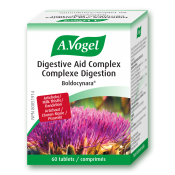Bloating
Bloating distends the abdomen, sometimes to the point that you look eight months pregnant. Generally, gas builds up throughout the day and causes major discomfort.
You leave home in the morning with properly fitting pants and by mid-afternoon they’re about to pop at the waist. While bloating can affect all menopausal women, those who experienced it during PMS are more likely to experience it during menopause.
What’s to blame?
Bloating is caused by a number of factors including a diet high in carbohydrates and starchy foods, endurance sports and stress. But why is bloating so common during perimenopause and what causes it?
Blame it all on your hormones! First of all, estrogens play a role in bile production. When estrogen levels drop, so does the amount of bile produced, which changes the way your body digests fats and, in turn, makes it produce more gas. What’s more, since bile acts as an intestinal lubricant, having less of it in the bowel can cause constipation.
Then there’s the fact that estrogens—yup, those darned estrogens again—influence water retention. During PMS, when estrogen levels are at their highest, the body tends to retain more water, which can add to that bloated feeling. During perimenopause, when estrogen variations become sporadic, water retention follows suit.
Bloating typically lasts anywhere from a few hours to several days. If it doesn’t go away within two weeks, go see your doctor to find out why. That’s because bloating can be a sign of a more serious underlying disorder such as Crohn’s disease or poor nutrition. It’s also worth noting that hormone therapy can cause bloating.
How can you stop it?
To prevent or stop bloating, you need to watch what you eat.
As menopause approaches, many women adopt a healthier diet, which often includes eating more legumes. It’s well known that legumes and cheese cause gas. Despite the best of intentions, sudden changes in diet can wreak havoc on the bowel, so it’s best to go easy.
Here are a few tips:
- Eat small meals regularly to effectively ease digestion and avoid bloating.
- Avoid coffee, alcohol and soft drinks.
- Cut down on salt.
- Avoid onions, which can cause gas.
- Say good-bye to sweet snacks.
- Walk to promote peristalsis and avoid constipation.
- Take up a sport: exercise reduces stress, a major contributor to digestive problems.
- Drink a lot of water.
N.B. For some people, lactose can be another cause of bloating.
Natural products to the rescue!
To regulate hormones in women suffering from PMS or experiencing perimenopause, there’s nothing like Vitex. Given that many symptoms, including bloating, are caused by hormonal imbalances, this is the treatment of choice. It straightens things out, but it does so gently: allow two or three months for Vitex take full effect.
While you’re waiting for Vitex to reach its full effectiveness, you can treat the symptoms to get immediate relief. Boldocynara stimulates the production of bile and can help make up for deficiencies caused by fluctuations in estrogen levels. It’s particularly effective in promoting fat digestion. Spices can also prove useful due to their bitter components. Digestive Health is a product containing spices that halt the production of gas and, in so doing, relieve bloating.
When bloating is caused by a diet too high in sugar and starches, promoting healthy intestinal flora is key to feeling better. That’s where whey comes in: it fosters an ideal pH for the proliferation of good intestinal bacteria.
These simple solutions should enable you to keep your pants from popping open all day long.





